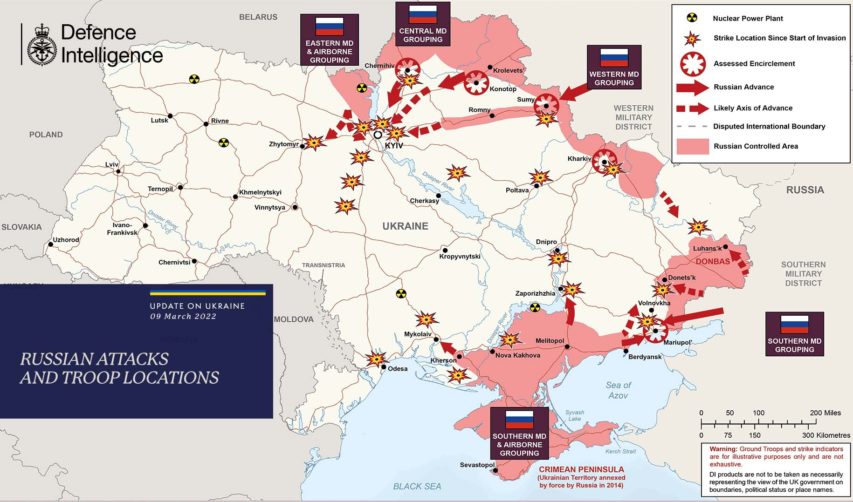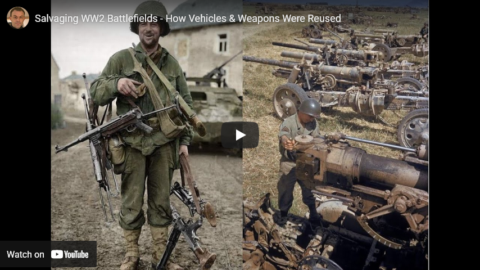Rex Krueger
Published 9 Mar 2022Get ready for the New Woodwork Economy with these flexible strategies.
Patrons get EVERYTHING first: http://www.patreon.com/rexkrueger
Our plans are affordable: https://www.rexkrueger.com/storeRead my Special Report on the New Woodwork Economy: https://www.rexkrueger.com/articles/2…
______________________________________________Build these benches from affordable lumber:
The Incredible English Joiner’s Bench:
Video: https://youtu.be/zcq1LQq08lk
Plans: https://www.rexkrueger.com/store/join…Build my Portable Workbench: https://www.rexkrueger.com/store/quic…
Take my bench-building course: https://rexkrueger.retrieve.com/g/0G5…
Watch the Quickstack Bench Video: https://youtu.be/l2C5NRS1uLENeed Something cheaper? Build the Lightweight Traveler Workbench:
Video: https://youtu.be/lPiMjv7lkqI
Plans: https://www.woodworkforhumans.com/sto…
______________________________________________Build this furniture from inexpensive pine:
Plans Bundle: https://www.rexkrueger.com/store/soft…
2×4 Stool:
https://youtu.be/FzZdFCSet48Frontier Desk:
https://youtu.be/f86Eh9roOKMNo-glue Wall Box:
https://youtu.be/E4wCJGNb6yUSix-board Chest:
https://youtu.be/cBq5DGOChgcEarly American Cupboard:
https://youtube.com/playlist?list=PLR…
______________________________________________Make these tools for your shop IN your shop!
https://youtube.com/playlist?list=PLR…
______________________________________________Get My New Book, Everyday Woodworking: https://amzn.to/3oyjC0E
Check out my new site: https://woodworkforhumans.com
______________________________________________Sign up for Fabrication First, my FREE newsletter: http://eepurl.com/gRhEVT?
______________________________________________Wood Work for Humans Tool List (affiliate):
*Cutting*
Gyokucho Ryoba Saw: https://amzn.to/2Z5Wmda
Dewalt Panel Saw: https://amzn.to/2HJqGmO
Suizan Dozuki Handsaw: https://amzn.to/3abRyXB
(Winner of the affordable dovetail-saw shootout.)
Spear and Jackson Tenon Saw: https://amzn.to/2zykhs6
(Needs tune-up to work well.)
Crown Tenon Saw: https://amzn.to/3l89Dut
(Works out of the box)
Carving Knife: https://amzn.to/2DkbsnM
Narex True Imperial Chisels: https://amzn.to/2EX4xls
(My favorite affordable new chisels.)
Blue-Handled Marples Chisels: https://amzn.to/2tVJARY
(I use these to make the DIY specialty planes, but I also like them for general work.)*Sharpening*
Honing Guide: https://amzn.to/2TaJEZM
Norton Coarse/Fine Oil Stone: https://amzn.to/36seh2m
Natural Arkansas Fine Oil Stone: https://amzn.to/3irDQmq
Green buffing compound: https://amzn.to/2XuUBE2*Marking and Measuring*
Stockman Knife: https://amzn.to/2Pp4bWP
(For marking and the built-in awl).
Speed Square: https://amzn.to/3gSi6jK
Stanley Marking Knife: https://amzn.to/2Ewrxo3
(Excellent, inexpensive marking knife.)
Blue Kreg measuring jig: https://amzn.to/2QTnKYd
Round-head Protractor: https://amzn.to/37fJ6oz*Drilling*
Forstner Bits: https://amzn.to/3jpBgPl
Spade Bits: https://amzn.to/2U5kvML*Work-Holding*
Orange F Clamps: https://amzn.to/2u3tp4X
Screw Clamp: https://amzn.to/3gCa5i8Get my woodturning book: http://www.rexkrueger.com/book
Follow me on Instagram: @rexkrueger
March 10, 2022
High lumber prices might NOT come down. This is the New Woodwork Economy
“Putin’s War”
In his latest post on the Russian-Ukrainian conflict, Stephen Green suggests we will end up calling it “Putin’s War”:
Putin apparently believed his top general — “who has never been a professional soldier” — that the Russian Army was up to the task of quickly defeating Ukraine.
Ukraine’s president, Volodymyr Zelenskyy, was supposed to flee or be killed/captured — not lead a heroic resistance. Ukraine’s kleptocratic government was supposed to collapse. Putin seems not to have had a Plan B, aside from the old Russian habit of firing artillery and rockets at stuff until even the rubble stops bouncing.
Putin failed to heed the lesson of Grozny: That even a besieged city, cut off from all reinforcement, can hold out for weeks. Kyiv is neither completely under siege nor cut off from reinforcement.
Putin also seems to have badly underestimated the West’s willingness to put the screws to the Russian economy, even though we’re putting the screws to ourselves, too.
If the war continues going badly for Russia, it ought to be remembered not as the Ukraine War or even the Russo-Ukraine War.
It ought to be called Putin’s War.
But at the rate Joe Biden is going, the Ukraine War might end up being known as the Putin-Biden War, and we all get to pay for it.
I posted a couple of comments on MeWe about his article:
I was commenting on another thread a bit earlier about how the fall of the Soviet Union revealed just how much of their military power was smoke and mirrors … a whole country of military Potemkin Villages. From what we can tell is happening in Ukraine, things haven’t improved much for the successor Russian military. On the other hand, thanks to progressive control of pretty much everything in the west, we’re starting to realize a lot of western military strength is a bit Potemkin-y. And the progressive warhawks now want to start WWIII? Let’s all hope they don’t get their wish!
Near the end of the column, you suggest calling it “Putin’s War”, which I think is a good idea. I’m starting to see Putin and the apparent state of the Russian military as being quite analogous to Mussolini and the Italian military. Il Duce had carefully excluded from his advisors and military leadership anyone who might tell him the truth about the state of Italy’s war-making capabilities and was clearly drinking his own ink on the propaganda side. Italy was forced into a war they were not equipped to fight because Il Duce believed the newsreel and parade-ground might he saw was real. Sound like something Putin may have done as well?
In The Critic, Peter Caddick-Adams catches us up on the war news to date:
It was during the Winter War of 1939-40, when plucky little Finland stood up to the might of Soviet Russia, that the Finns prepared a nasty surprise for their attackers. They made millions of petrol bombs and named them after the Russian Foreign Minister, Mr Molotov. Today, it is Ukraine that has borrowed the Finnish recipe book to greet a new generation of Russian invaders with petrol and fire.
How has the current war against another Russian neighbour, Ukraine, progressed? After months of tensions and intense diplomacy, including assurances to the UK’s Defence Minister by his Russian counterpart that there were “no plans to invade”, Mr Putin’s forces crossed the threshold early on 24 February. This had been preceded by long-announced military “manoeuvres” in neighbouring Belarus, which saw the assembly of over 100,000 combat-ready troops with all their vehicles and equipment. We now know this was a long-planned distraction to cover the concentration and preparation of their forces for war.
They came from 4 directions: Belarus in the north, from out of the rebel-held Donbas in the east, from Crimea in the south, and via amphibious assaults around the port of Mariupol. This tactic was designed to distract and divide the defenders and cause them to dilute their numbers. However, defying a basic military principle of war, the plan also inflicted the same disadvantage on the Russians. None of the four attacking thrusts possessed sufficient force to defeat their opponents and knife their way through to their objectives.
The first strikes in the early hours were a surprise only in their time and location, for Ukraine’s President Zelensky had long feared the worst, and other nations had quietly assessed an invasion was likely, rather than probable. Accompanied by the air raid sirens of Ukraine’s civil protection service, explosions from Russian cruise missile strikes were heard across the country. Some 600 have been fired since. Their airborne forces landed at civilian airports and military airbases. These elite paratroops were deployed to enable endless planeloads of follow-on forces to drive on the principal cities of Kyiv and Kharkiv before Ukraine woke up to what was happening.
The Russian tactical goal remains to control Ukraine by separating its pro-Western government from the population, hence the importance of the cities. President Zelensky declared martial law, ordered mobilization of all men between 18 and 60 and appealed to the wider world for help. Thousands started making Molotov cocktails, so deadly to attacking tanks more than 80 years ago. In some ways this war is anachronistic, with a Russian armoured train being filmed moving supplies forward. Expect railway sabotage with shades of Lawrence of Arabia. On 1 March, Belarus predictably entered the war on Russia’s side with such timing, that it is assumed President Lukashenko was merely following a script Vladimir Putin had written months earlier.
In The Line, Matt Gurney wonders what will happen if Russia actually loses the war:
Military historians and security experts are going to be studying the first two weeks of this invasion for years. Entire careers will be made of this, whole PhD theses written. Armies have always marched on their stomachs, but a modern army also needs massive quantities of fuel and lubricants, ammunition for hungry weapons systems, spare parts for weapons and vehicles, medical supplies and, yes, food for the troops, and also the ability to move wounded troops and prisoners backward down the supply line. This all takes an enormous amount of planning and specialized equipment and knowledge. Sustaining an army on the move means having the necessary supplies and items in abundant supply, but also having a sophisticated enough logistics system to get them to where they’re needed in a timely way. This involves everything from having good warehouse inventory control systems to the vehicles required to ferry the supplies to where they’re needed, plus a trained pool of manpower to run the whole operation. And the logistics system itself needs to be sustained — what good is a fleet of trucks to deliver supplies to the front if you can’t fuel those trucks?
We knew Russian logistics were well below Western standards. Logistics units never get the attention they deserve compared to the more exciting frontline units, and in a cash-strapped, corruption-riddled military like Russia’s, that means major problems in times of war — in an already poorly off military, the units that get even less TLC than most are going to be in rough shape indeed. Still, the Russians are underperforming what many Western analysts expected. We knew they’d be bad at this, but this is really bad.
There are reports of Russian troops running out of fuel and food, and abandoning their vehicles in place. There are other reports of long-expired Russian combat rations. In what was perhaps the nerdiest but most fascinating Twitter analysis thread of the war thus far, a retired American Department of Defence employee looked closely at photos from the battlefields in Ukraine and concluded that the tires on Russian vehicles were failing prodigiously, suggesting that the vehicles were not properly cared for when in storage. Again, given the known funding and corruption problems in the Russian military, that’s extremely plausible.
I mentioned this in an earlier Ukraine post, that the Soviet doctrine was much more oriented to the attack, and units and formations that hit heavier resistance than they could overcome were to be left behind to struggle, rather than be reinforced as most western military doctrine would prefer. Units were expected to fight until they were no longer combat-effective (or longer) and “expended” more like ammunition, in ways no western army could possibly support. As a result, Soviet and Soviet-aligned armies tended to be proportionally much more heavily armed, but very modestly supplied and logistics was very much a backwater where unpopular or inefficient officers could be sent to rot, professionally. I think most western analysts had assumed the successor Russian forces had moved away from those ideas, but the fighting to date in Ukraine seems to show that to be mistaken.
Salvaging WW2 Battlefields – How Vehicles & Weapons Were Reused
Mark Felton Productions
Published 25 Nov 2021After the wounded and dead had been removed from a battlefield, what happened to all the military vehicles and weapons left lying around? Find out here.
Dr. Mark Felton is a well-known British historian, the author of 22 non-fiction books, including bestsellers Zero Night and Castle of the Eagles, both currently being developed into movies in Hollywood. In addition to writing, Mark also appears regularly in television documentaries around the world, including on The History Channel, Netflix, National Geographic, Quest, American Heroes Channel and RMC Decouverte. His books have formed the background to several TV and radio documentaries. More information about Mark can be found at: https://en.wikipedia.org/wiki/Mark_Fe…
Help support my channel:
https://www.paypal.me/markfeltonprodu…
https://www.patreon.com/markfeltonpro…Disclaimer: All opinions and comments expressed in the ‘Comments’ section do not reflect the opinions of Mark Felton Productions. All opinions and comments should contribute to the dialogue. Mark Felton Productions does not condone written attacks, insults, racism, sexism, extremism, violence or otherwise questionable comments or material in the ‘Comments’ section, and reserves the right to delete any comment violating this rule or to block any poster from the channel.
Credits: US National Archives; Library of Congress
Thumbnail colorisation (left image) by Paul Reynolds







